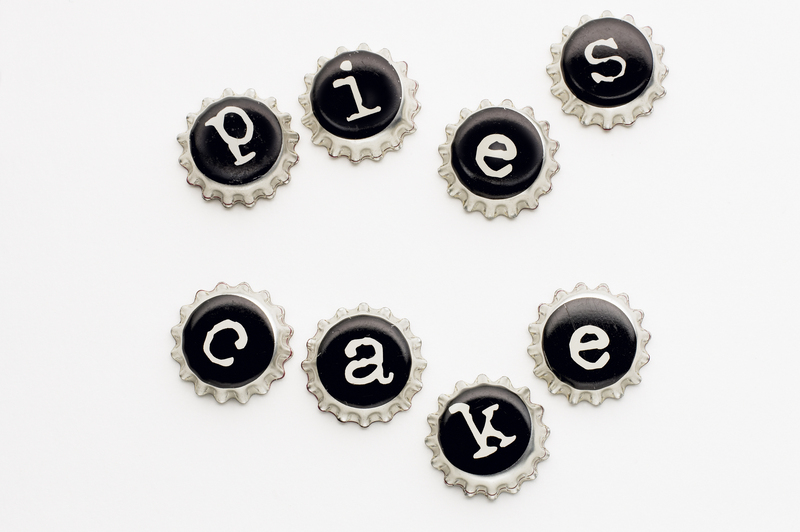Minimize Plastic Use at Festivals: Best Practices
Posted on 24/01/2025
Festivals are a hotspot for generating waste, especially plastic. This growing issue not only contributes to environmental pollution but also harms wildlife and human health. It's not too late to turn the tide, and by implementing best practices, festival organizers, vendors, and attendees can significantly reduce plastic use. Below are expert tips and strategies on how to minimize plastic use at festivals.
Understanding the Environmental Impact of Plastic
Plastic pollution has reached alarming levels, with over 8 million tons of plastic waste entering our oceans annually. Festivals contribute substantially to this plight due to disposable plastic cups, plates, and packaging. Understanding the gravity of plastic pollution is the first step toward change.

Planning for a Plastic-Free Festival
Effective planning is crucial for minimizing plastic use at festivals. Here's how festival organizers can set the stage for sustainability:
1. Set Clear Goals and Policies
Setting clear, realistic goals for plastic reduction helps unify efforts among all stakeholders. Communicate these goals through a comprehensive policy that includes guidelines and expectations for vendors and attendees.
2. Collaborate with Eco-Friendly Vendors
Partner with vendors who prioritize sustainability. Opt for those who offer biodegradable or reusable alternatives to single-use plastics. Establishing vendor agreements that enforce sustainable practices can make a significant difference.
3. Provide Adequate Sorting Stations
Place recycling and compost stations strategically around the festival grounds. Clear signage can guide attendees to dispose of their waste responsibly. Assign volunteers to manage these stations and answer any questions festival-goers may have.
Encouraging Attendee Participation
A key component in reducing plastic waste at festivals is attendee participation. Engagement initiatives can encourage festival-goers to adopt eco-friendly practices.
4. Promote Reusable Items
Encourage attendees to bring their own reusable bottles, cups, and utensils. Offer incentives such as discounts on food and beverages for those who bring their own containers. Provide water refill stations to reduce the necessity of bottled water.
5. Educate the Attendees
Educating the audience through workshops, flyers, and social media can raise awareness about the importance of reducing plastic use. Inform them about the festival's sustainability goals and how they can be part of the solution.
Innovative Alternatives to Single-Use Plastics
The festival could integrate several innovative solutions to replace single-use plastics. Here are some alternatives:
6. Biodegradable and Compostable Products
Products made from materials like cornstarch, bamboo, and sugarcane decompose much faster than traditional plastics. Opt for biodegradable and compostable plates, cups, and cutlery. Ensure that these products meet industry standards for compostability.
7. Edible Cutlery and Packaging
Edible cutlery and packaging present a zero-waste solution that can be both fun and functional. These items are made from food-safe materials such as rice, wheat, and sorghum, which are safe to eat and fully biodegradable.
8. Refillable Beverage Programs
Introduce a cup or bottle deposit scheme where attendees pay a small deposit for their reusable cup or bottle, which is refunded upon return. This reduces waste and encourages the reuse of containers.
Case Studies: Festivals Leading the Way
Several festivals worldwide have already taken monumental steps toward sustainability. Learning from these events can provide practical insights and inspiration.
9. Glastonbury Festival
The Glastonbury Festival in the UK has a strong ethos of environmentalism. By banning single-use plastic bottles and providing multiple water refill stations, the festival has significantly reduced its plastic footprint.
10. Shambala Festival
Located in the UK, the Shambala Festival has taken numerous proactive steps, such as banning single-use plastics and offering reusable cups, plates, and cutlery. They also provide tools for vendors to adopt sustainable practices.
11. DGTL Festival
The DGTL Festival in Amsterdam prides itself on its sustainability measures. The event features a comprehensive waste management system where nearly 100% of the waste is reused, recycled, or composted.

Long-term Strategies for Continuous Improvement
Sustainability isn't a one-time effort; it requires continuous improvement and adaptation. Here are long-term strategies to keep plastic use at festivals to a minimum.
12. Implement Feedback Mechanisms
Gathering feedback from attendees, vendors, and volunteers is essential for identifying areas of improvement. Use surveys and suggestion boxes to collect constructive feedback that can guide future initiatives.
13. Regularly Update Sustainability Goals
As technologies and best practices evolve, so should your sustainability goals. Regularly review and update your goals based on the latest innovations and regulatory requirements. This keeps the festival aligned with the highest standards of environmental responsibility.
14. Foster Community and Stakeholder Engagement
Building a community focused on sustainability can amplify your efforts. Engage local environmental organizations, schools, and businesses in your initiatives. Collaborative efforts ensure a broader impact and long-term commitment.
Conclusion
Minimizing plastic use at festivals is a challenging but crucial endeavor. By incorporating thoughtful planning, engaging attendees, adopting innovative solutions, and committing to ongoing improvements, festival organizers can make appreciable strides in reducing plastic waste. The responsibility lies with everyone--organizers, vendors, and attendees--to work collectively towards a more sustainable, plastic-free future.
By taking these steps, festivals can not only reduce their environmental footprint but also set a powerful example for other large-scale events. Let's make every festival an opportunity to celebrate sustainability and protect our planet for generations to come.
